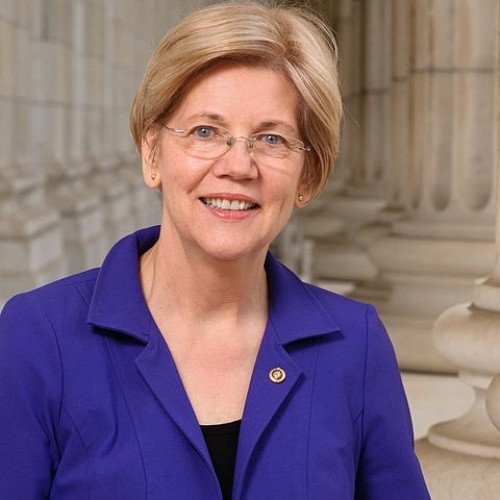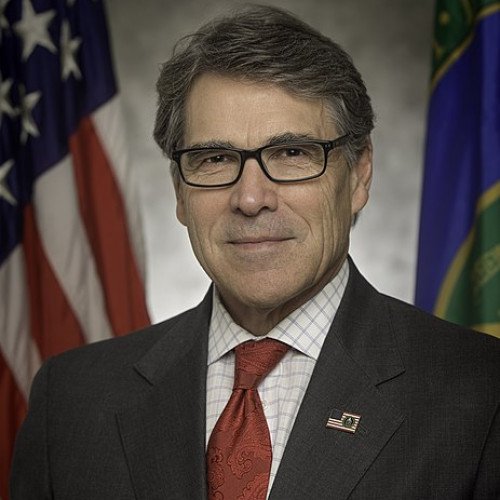Elizabeth Warren VS Rick Perry

Elizabeth Warren
Elizabeth Ann Warren (née Herring; born June 22, 1949) is an American politician and former law professor (specializing in bankruptcy law) serving as the senior United States senator from Massachusetts, serving since 2013. A member of the Democratic Party and regarded as a progressive, Warren has focused on consumer protection, economic opportunity, and the social safety net while in the Senate. She was a candidate in the 2020 Democratic Party presidential primaries. Warren is a graduate of the University of Houston and Rutgers Law School and has taught law at several universities, including the University of Houston, the University of Texas at Austin, the University of Pennsylvania, and Harvard University. She was one of the most influential professors of bankruptcy law before beginning her political career. Warren has written eleven books and more than 100 articles.Her first foray into public policy began in 1995, when she worked to oppose what eventually became a 2005 act restricting bankruptcy access for individuals. During the late 2000s, Warren's national profile grew following her forceful public stances in favor of more stringent banking regulations after the financial crisis of 2007–08. She served as chair of the Congressional Oversight Panel of the Troubled Asset Relief Program, and she proposed and established the Consumer Financial Protection Bureau, for which she served as the first special advisor under President Barack Obama. In 2012, Warren defeated incumbent Republican Scott Brown and became the first female U.S. senator from Massachusetts. She won reelection by a wide margin in 2018, defeating Republican nominee Geoff Diehl. On February 9, 2019, Warren announced her candidacy in the 2020 United States presidential election. She was briefly considered the front-runner for the Democratic nomination in late 2019, but support for her campaign dwindled. She withdrew from the race on March 5, 2020, after Super Tuesday.
Statistics for this Xoptio

Rick Perry
James Richard "Rick" Perry (born March 4, 1950) is an American politician who served as the 14th United States Secretary of Energy from 2017 to 2019 and as the 47th Governor of Texas from 2000 to 2015. Perry also ran unsuccessfully for the Republican nomination for President of the United States in the 2012 and 2016 elections. Born into a family of cotton farmers in Haskell, Texas, Perry graduated from Texas A&M University in 1972 and entered into the United States Air Force, serving a five-year stint and achieving the rank of captain. After leaving the Air Force in 1977, Perry returned to Texas and entered politics, serving as a Democratic member of the Texas House of Representatives from 1985 to 1991. In 1989, Perry switched parties and became a Republican, and was elected Agriculture Commissioner of Texas the following year. In 1998, Perry was elected Lieutenant Governor of Texas, becoming the state's first Republican Lieutenant Governor since Reconstruction. Perry assumed the governorship of Texas in December 2000, after Governor George W. Bush resigned following his election as President. Perry was re-elected Governor three times, becoming the longest-serving Governor in Texas history. As Governor, Perry identified as a staunch conservative, enacting conservative fiscal policies, restrictions on abortion and expanded gun rights. Long considered a potential presidential candidate, Perry officially announced his candidacy for the 2012 Republican nomination for President in August 2011. Perry initially performed well in polling and showed strong fundraising prowess, leading to him being considered a serious contender for the nomination, however his support declined following poor performances in debates and early primaries and he withdrew from the race in January 2012.Perry declined to run for re-election to a fourth term as Governor and left office in 2015, launching a second presidential campaign shortly after. Perry's second presidential campaign failed to garner substantial polling support, fundraising or media attention, leading to him withdrawing from the race after only three months. Perry was initially a vocal opponent of Donald Trump's 2016 campaign for President, however he later endorsed Trump after he secured the Republican nomination. After winning the presidency, Trump appointed Perry as Secretary of Energy and he was confirmed by the United States Senate in a 62–37 vote on March 2, 2017. On October 17, 2019, Perry reported to Trump that he intended to resign as Secretary of Energy at the end of the year. He left office on December 1, 2019.